
“repeat after me: I am free”
If our lives do not demand explanation, then we have become the system we hope to change.-IC

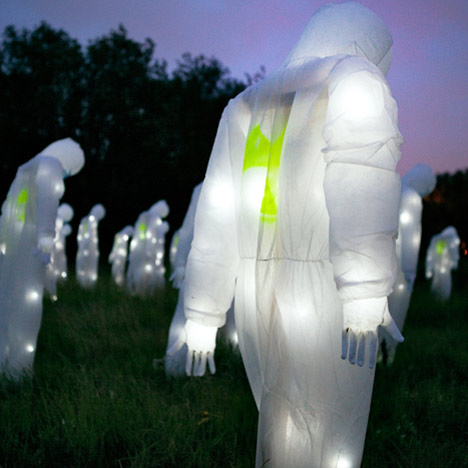
An army of 100 scarecrows dressed in glowing decontamination suits kept a sinister vigil over the Dockville Festival in Hamburg earlier this month.
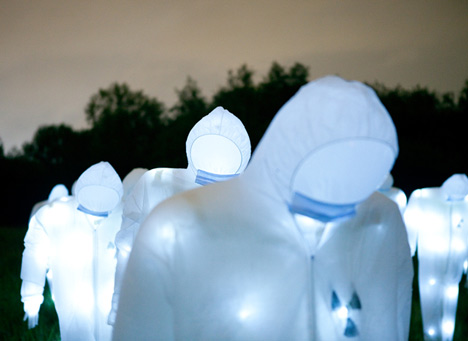
Installed by Spanish designers Luzinterruptus, the figures were supported in regular rows and adorned with nuclear symbols, blank faces and taped-up mouths.
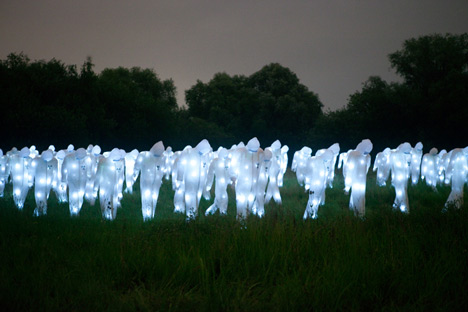
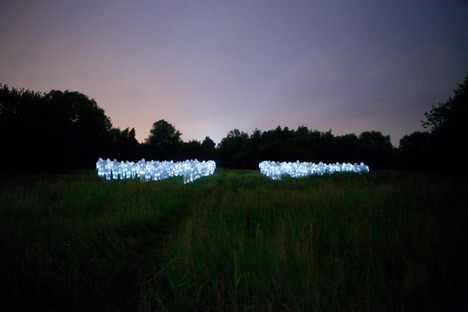
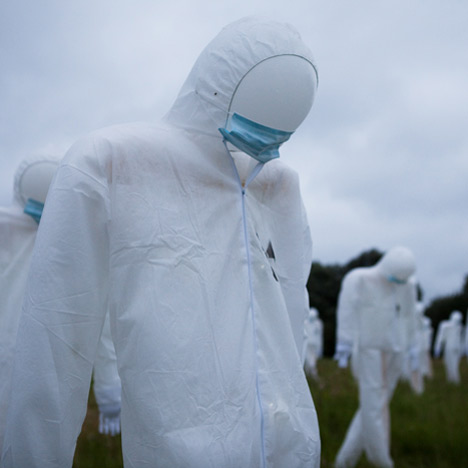

MICHELE NORRIS, host: From NPR News, this is ALL THINGS CONSIDERED. I'm Michele Norris. And we begin this hour in Yemen, where at least two dozen anti-government protesters are dead and more than 200 are wounded. That's after they attempted to leave the confines of their encampment in the capital, Sanaa, and march peacefully through the city streets. Yesterday was the first time in months protesters have tried such a march, and security forces as well as gunmen dressed in civilian clothes opened fire, some from rooftops.
The result, one of the bloodiest days in Yemen since March. Erika Solomon is in Sanaa reporting for Reuters, and she joins me now. Erika, tell us more about what exactly set off the violence yesterday and what's been going on today.
ERIKA SOLOMON: Well, protesters had for weeks been discussing a need to escalate the situation. They've been languishing in their protest camps for months, having small protests but not really pushing in any way to either get the government's attention or, say, media attention, and they felt that they needed to recapture the momentum that they had lost. So they started a march outside of the usual confines of where they are known to protest. The city of Sanaa is divided right now. Part of it is under control by the defected troops of General Ali Mohsen who threw his weight behind protesters several months ago, and the rest of the city is still controlled by government forces.
So they went into an area that was considered the dividing line between these two sides. They knew that this might cause violence, but they thought it was worth the risk in order to try and push through what has been months of a very, very frustrating political stalemate for them.
NORRIS: And, Erika, what's been happening there today?
SOLOMON: The protesters did manage to take some of this area on the dividing line, which I described to you, and they camped out there overnight. Very early in the morning, there was large explosions and gunfire. What he heard from witnesses, as well as from a Reuters cameraman nearby, was that they saw people shooting from the rooftops, and they believe they were government forces. The protesters started fleeing. And as the day went on, it went from something of protesters being attacked to clashes between the defected troops and the government forces.
And it became a kind of military confrontation, which was something, I think, that all sides in Sanaa and in Yemen were concerned about happening. This is something that they wanted to avoid, and I'm pretty sure they're going to be keen to try and step away from as soon as they can.
NORRIS: Who were these protesters? Are they mainly young people?
SOLOMON: I was in the field hospital today. I saw a 10-month-old child, and I saw, you know, 70-year-old men in this area where the protesters are. And you have families, high school students. They're very much driven by a spirit created by the university students who started this protest earlier on in January and February.
NORRIS: What was the scene like at the field hospital that you visited?
SOLOMON: It was very traumatic. And they don't have a lot of space. They're working out of a mosque. And, obviously, that's not the same as having a hospital. So their doctors seemed pretty well organized. They had a system for bringing in the wounded, but they were just coming in so quickly you just have streams of five and 10 and 15 wounded people being rushed in on stretchers or on motorbikes and just being laid out on the floor as they quickly try to pull out bullets and so on. And then in one corner of the room, they were laying out the dead, and obviously, the scene there was - is quite difficult. Families were huddled around praying and crying.
NORRIS: Now, as this was taking place, the president, Ali Abdullah Saleh, had met with King Abdullah in Saudi Arabia. Is it expected that he will address his countrymen at some point as this is going on?
SOLOMON: What I'm hearing actually right before I got on the phone with you is that they might have agreed a kind of cease-fire. It's not quite clear to me yet that that deal has been finalized. I think it really depends on how tonight goes in terms of diplomatic negotiations.
NORRIS: Erika Solomon is a reporter for Reuters. She was speaking to us from Sanaa in Yemen. Erika, thank you very much.
SOLOMON: Thank you.
